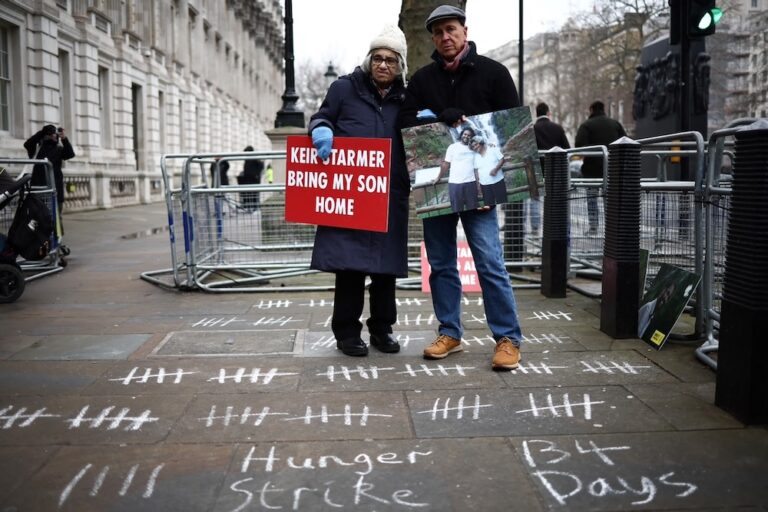"We condemn the criminal prosecution of reporters and bloggers because of their opinions. We are against military trials, where minimum standards of due process are lacking," ANHRI, CIHRS and other groups said.
(ANHRI/IFEX) – Cairo, 5 April 2011 – Egyptian human rights organizations, signatories to this statement, call on the Egyptian military junta to put an end to the military trial of Egyptian blogger Michael Nabil Sanad, owner of the blog “Ibn Ra”. He was arrested from his home in Ain Shams, Cairo on 28 March 2011 over an article on his blog discussing the relationship between citizens and the Egyptian army in the aftermath of the revolution of 25 January. The article was critical of abuses committed by the military police and cited a number of news reports published in newspapers and websites.
Michael Nabil Sanad was militarily prosecuted and referred to a military court on charges of “insulting the military institution, dissemination of false news and disturbing public security”. The first hearing was held on 30 March, at which point the charge of disturbing public security was dropped. Another hearing was held on 4 April and the case was subsequently adjourned to 6 April.
Michael Nabil Sanad has been arrested twice by the Egyptian army. The most recent incident came on 8 February, before former president Hosni Mubarak stepped down. The blogger was detained while participating in the anti-Mubarak protests holding a banner that read, “civil, not military or religious.”
The undersigned organizations said, “a military court is trying an Egyptian blogger over expressed opinions while at the same time extremists cut off a citizen’s ear and are pardoned. This points to a fatal error, either in the application of justice in Egypt or in how to deal with freedom of opinion and expression after the 25 January revolution.”
The human rights organizations added, “We continue to condemn the criminal prosecution of reporters and bloggers, or any citizen because of his opinions. We are certainly against military trials, where minimum standards of due process are lacking. The military junta should be aware that it is natural to receive criticism so long as they continue to represent political power in the country, albeit temporarily. It is not acceptable that any authority or government act above criticism or above the law, because the rule of law and the right to criticism are the most important elements of the democratic state that we seek and which was sought by the Egyptian revolution.”
The Arabic Network for Human Rights Information
Association for Freedom of Thought and Expression
Hisham Mubarak Law Center
Egyptian Initiative for Personal Rights
Egyptian Center for Economic and Social Rights
Cairo Institute for Human Rights Studies
Egyptian Association for Community Participation Enhancement
elNadeem Center for Psychological Therapy and Rehabilitation


